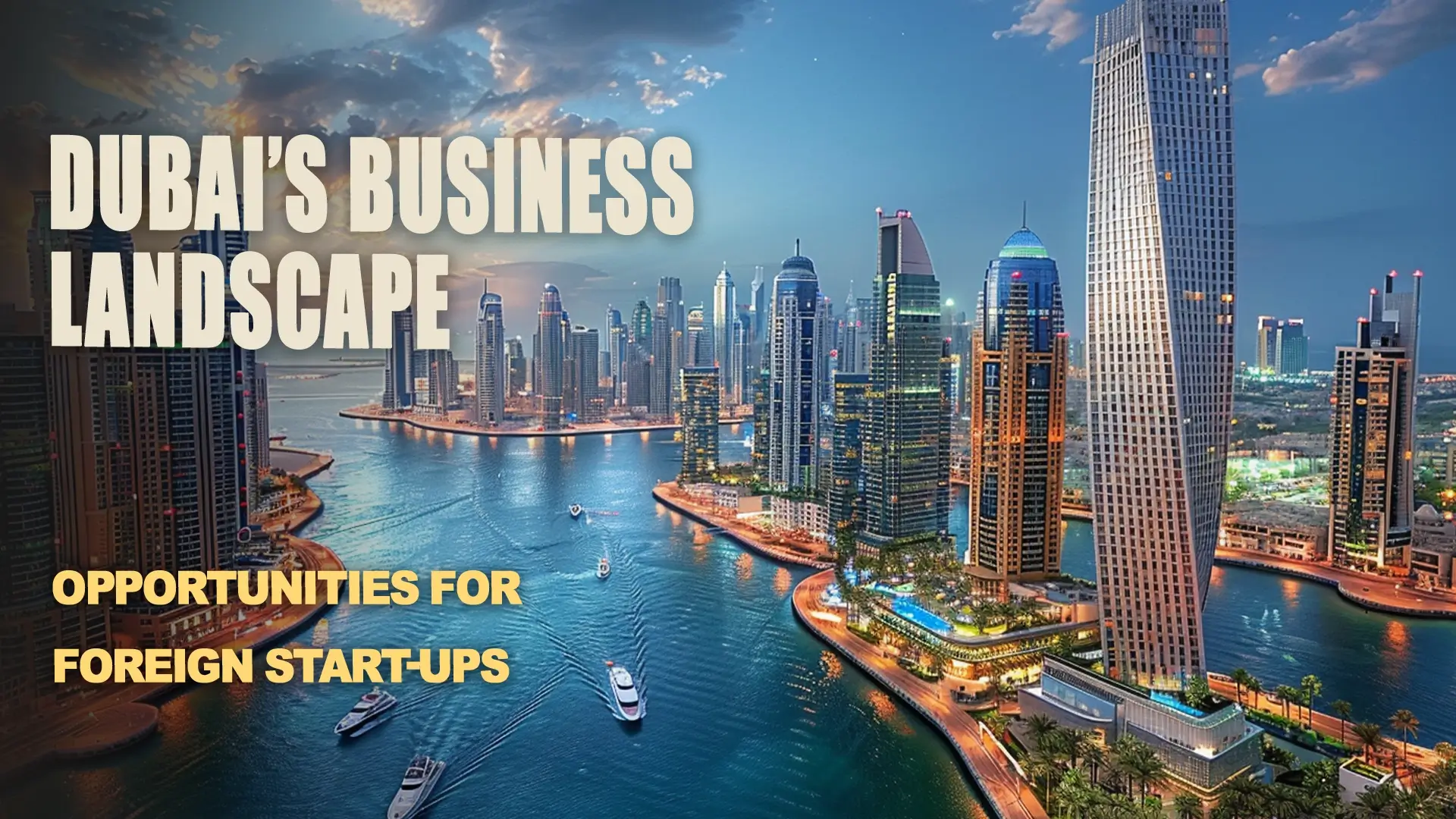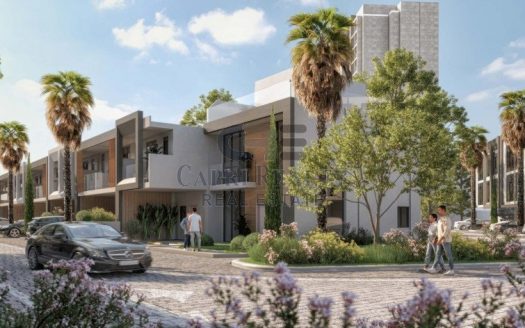Dubai’s Business Landscape: Top Opportunities for Foreign Startups
Last Updated on July 29, 2025

As a real estate expert with over 15 years of experience in the Dubai property market, I’ve witnessed the remarkable transformation of this desert metropolis into a global business hub. The Dubai business opportunities landscape continues to evolve, offering unprecedented potential for foreign start-ups and entrepreneurs. Let me share my insider’s perspective on how you can successfully establish and grow your business in this dynamic market.
The Golden Age of Dubai’s Business Landscape
Dubai’s business landscape has entered a new era of prosperity and innovation. The post-Expo 2020 legacy has created a robust foundation for sustainable economic growth, with the government introducing groundbreaking initiatives to attract foreign investment. In 2023, Dubai attracted over AED 20.5 billion ($5.6 billion) in foreign direct investment across 378 projects, representing a 25% increase from the previous year. This remarkable growth is not just a number – it’s a testament to the emirate’s commitment to becoming the world’s premier business destination.
The strategic location of Dubai, positioned between East and West, provides businesses with access to over 2.2 billion consumers in regional markets. This geographical advantage, combined with state-of-the-art infrastructure and a business-friendly environment, creates an ideal ecosystem for start-ups and established companies alike. The absence of personal income tax and the introduction of a competitive 9% corporate tax rate for profits exceeding AED 375,000 ($102,000) make Dubai an attractive destination for entrepreneurs seeking to maximize their returns.
Recent government initiatives have further enhanced Dubai’s appeal. The Golden Visa program, launched in 2019 and expanded in 2022, offers long-term residency options for entrepreneurs and investors. This program has already attracted over 150,000 talented individuals to the emirate, contributing to a diverse and skilled workforce. The minimum investment requirement for property investors to obtain a Golden Visa starts at AED 2 million ($544,500), providing a clear pathway for business owners to establish long-term presence in the market.
The UAE’s start-up ecosystem has matured significantly, with Dubai leading the charge in fostering innovation and technology adoption. In 2023, the emirate’s start-ups attracted over AED 4.6 billion ($1.25 billion) in venture capital funding, with fintech, e-commerce, and artificial intelligence sectors showing particularly strong growth. This robust funding environment is supported by more than 50 active venture capital firms and numerous angel investor networks operating in the region.
The journey of establishing a business in Dubai begins with understanding the various jurisdiction options available. The emirate offers three main business jurisdiction types: mainland, free zones, and offshore. Each comes with its own set of advantages and considerations that entrepreneurs must carefully evaluate based on their business objectives.
Mainland companies can operate anywhere in the UAE and freely trade with the local market. The initial setup costs for a mainland company typically range from AED 15,000 to AED 50,000 ($4,000-$13,600), depending on the business activity and location. The process has been streamlined significantly, with the Department of Economy and Tourism (DET) introducing a unified digital platform that allows entrepreneurs to obtain their trade license within 24 hours.
Free zones represent special economic areas with their own regulations and incentives. Dubai hosts over 30 free zones, each specialized in specific industry sectors. The Dubai Multi Commodities Centre (DMCC) has been ranked the world’s #1 free zone for seven consecutive years, hosting over 21,000 registered companies. Initial setup costs in free zones can range from AED 20,000 to AED 40,000 ($5,445-$10,890), with packages including trade license, visa eligibility, and workspace solutions.
The recent changes in foreign ownership regulations have been transformative. Since June 2021, 100% foreign ownership is permitted for most business activities in the mainland, eliminating the traditional requirement for a local sponsor. This change has led to a 300% increase in foreign-owned business registrations during the first year of implementation.
Selecting the Ideal Free Zone for Your Start-up
Dubai’s free zones are designed to cater to specific industry clusters, offering tailored infrastructure and support services. The selection of the right free zone can significantly impact your business’s growth potential and operational efficiency. Let me break down the most suitable options based on different business sectors and budget considerations.
Dubai Internet City (DIC) and Dubai Media City (DMC) form the region’s largest technology and media hub, hosting over 3,000 companies. The setup costs here start from AED 30,000 ($8,170) annually, with flexible payment plans available. These free zones offer specialized infrastructure, including high-speed fiber optic networks and dedicated data centers. The networking opportunities are exceptional, with regular industry events and access to potential clients like Microsoft, IBM, and Meta.
For trading and manufacturing businesses, Jebel Ali Free Zone (JAFZA) provides unparalleled logistics advantages. Connected directly to the region’s largest port and Al Maktoum International Airport, JAFZA offers warehousing solutions starting from 100 square meters at AED 38,000 ($10,345) annually. The free zone processed trade worth AED 454 billion ($123.6 billion) in 2023, demonstrating its pivotal role in regional commerce.
Dubai International Financial Centre (DIFC) stands out for fintech and financial services start-ups. While setup costs are higher, starting from AED 50,000 ($13,613), the benefits include a common law framework, an independent regulatory system, and access to over 3,000 financial institutions. The DIFC Innovation Hub provides specialized support for fintech start-ups, including regulatory sandboxes and funding opportunities.
Securing Funding and Financial Support
The UAE’s start-up funding ecosystem has matured significantly, offering diverse financing options for entrepreneurs at different stages of their business journey. Understanding and accessing these funding sources can be crucial for your business’s success in Dubai’s competitive market.
Government-backed initiatives provide significant support for start-ups. The Mohammed Bin Rashid Innovation Fund offers up to AED 3 million ($817,000) in interest-free loans to innovative businesses. The Dubai Future Foundation’s accelerator programs provide seed funding ranging from AED 50,000 to AED 500,000 ($13,613-$136,130), along with mentorship and market access opportunities. These programs have supported over 200 start-ups in the past two years, with a success rate of 73% in securing additional funding.
Venture capital investment in Dubai-based start-ups reached a record high of AED 4.6 billion ($1.25 billion) in 2023. Key sectors attracting investment include fintech (32%), e-commerce (28%), and deep tech (15%). Notable VC firms active in the market include Middle East Venture Partners (MEVP), BECO Capital, and Wamda Capital, with investment tickets ranging from AED 1 million to AED 20 million ($272,000-$5.4 million).
Angel investor networks play a crucial role in early-stage funding. Organizations like Dubai Angel Investors and VentureSouq have members willing to invest between AED 100,000 to AED 1 million ($27,225-$272,250) in promising start-ups. The Dubai Business Angels Network, launched in 2022, has already facilitated investments worth AED 125 million ($34 million) across 45 start-ups.
Bank financing has become more accessible for start-ups, with several UAE banks introducing specialized SME lending programs. Emirates NBD’s “Business Banking Plus” program offers unsecured loans up to AED 2.5 million ($680,625) for businesses operating for at least two years. RAKBank’s “Business Finance” solutions include working capital facilities starting from AED 100,000 ($27,225) with competitive interest rates of 6-8% annually.
Leveraging Government Support and Incentives
Dubai’s government has implemented comprehensive support systems and incentives to foster entrepreneurship and innovation. These initiatives create a nurturing environment for start-ups while reducing operational costs and administrative burdens.
The Dubai SME establishment, a division of the Department of Economic Development, provides extensive support for small and medium enterprises. Their services include business incubation facilities, training programs, and market access support. In 2023, Dubai SME supported over 3,000 entrepreneurs with total funding support exceeding AED 180 million ($49 million). Their flagship Mohammed Bin Rashid Fund for SMEs offers interest-free loans up to AED 1 million ($272,250) with flexible repayment terms of up to 5 years.
Tax incentives represent a significant advantage for businesses operating in Dubai. Besides the zero personal income tax, companies enjoy various exemptions and benefits. Free zone companies receive a 50-year tax holiday on corporate profits, while mainland companies benefit from no withholding tax and extensive double taxation agreements with over 100 countries. The introduction of the 9% corporate tax in 2023 maintains Dubai’s position among the most tax-efficient business destinations globally.
Government procurement opportunities provide another avenue for growth. The Dubai Government has committed to allocating 10% of its procurement budget to SMEs, representing potential contracts worth over AED 5 billion ($1.36 billion) annually. In 2023, more than 800 SMEs benefited from this initiative, securing contracts across various sectors including technology, construction, and consulting services.
Building Success Through Strategic Partnerships
Success in Dubai’s business environment often depends on building the right partnerships and understanding local business culture. My experience has shown that networking and collaboration are essential elements for sustainable growth in this market.
Dubai’s business landscape offers numerous networking platforms and industry events. The annual GITEX Technology Week attracts over 100,000 technology professionals and investors, providing unparalleled networking opportunities. The Dubai Chamber of Commerce organizes over 100 networking events annually, connecting businesses with potential partners and clients. Membership in these organizations starts from AED 2,000 ($545) annually and can provide access to exclusive business matching services and market intelligence reports.
Strategic partnerships with established local businesses can accelerate market entry and growth. Many successful foreign start-ups have leveraged partnerships with UAE-based companies for distribution, technology sharing, or market expansion. The Dubai FDI agency facilitates such partnerships through their “Business Connect” program, which has successfully matched over 500 foreign companies with local partners in the past two years.
Professional service providers play a crucial role in business success. Legal consultants typically charge between AED 15,000 to AED 30,000 ($4,084-$8,168) for comprehensive business setup services, including license acquisition and visa processing. Accounting services for small businesses range from AED 1,500 to AED 5,000 ($408-$1,361) monthly, depending on the transaction volume and complexity of requirements.
Building a local team requires understanding UAE labor laws and market salary expectations. Professional hiring services charge 15-20% of annual salary for recruitment, while implementing employee benefit packages typically costs 25-35% above base salary. The government’s Emiratisation program offers incentives for hiring UAE nationals, including salary support of up to AED 8,000 ($2,178) monthly for the first year.
The Dubai business opportunities landscape continues to evolve and expand, offering unprecedented potential for foreign entrepreneurs and investors. By understanding and leveraging the various support systems, funding options, and partnership opportunities available, you can position your business for success in this dynamic market. The key is to approach the market with thorough preparation, clear objectives, and a willingness to adapt to local business practices while maintaining innovation and excellence in your offerings.








